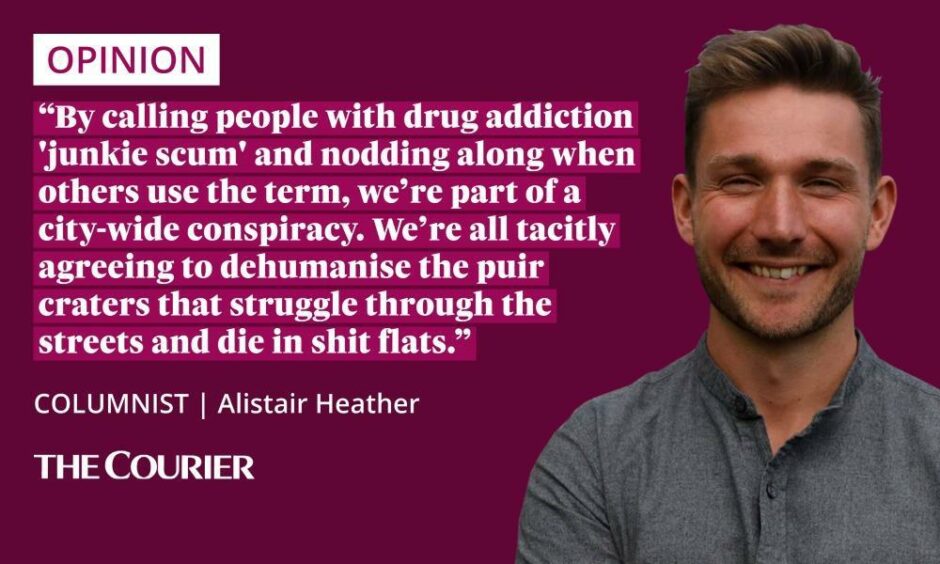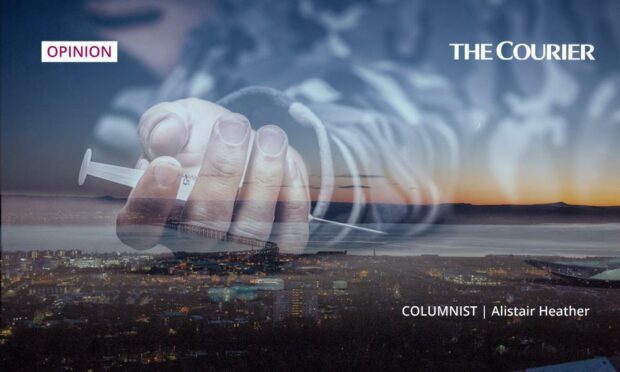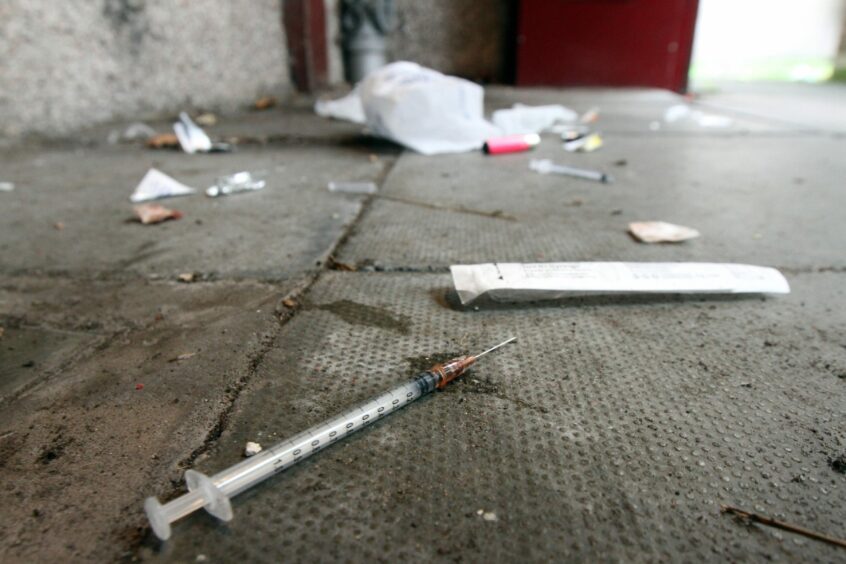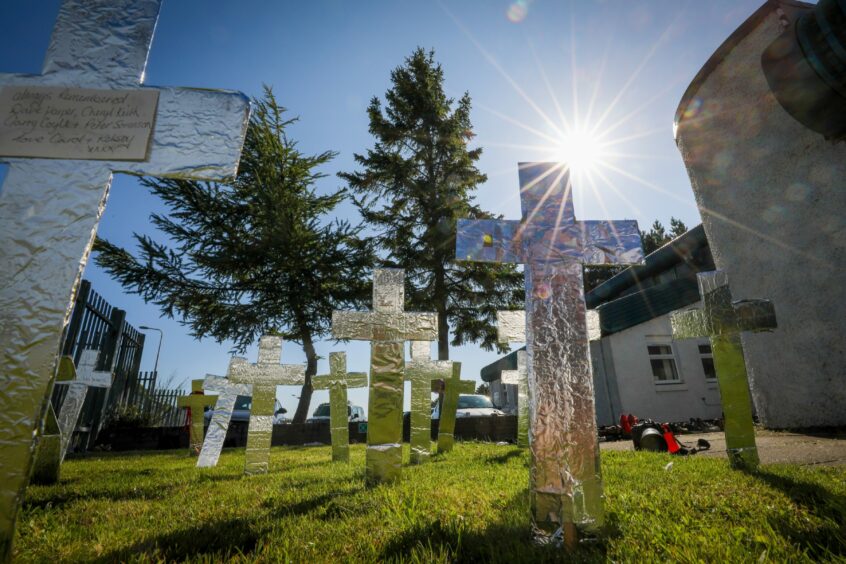We all play a part in Dundee drug deaths. Myself included. I’ll explain.
We’ve all got very personal experiences of people struggling from drug use.
Some of us have been addicts. Most of us conspire to make it very hard for people to recover and regain a place in “normal” life once they’ve fallen into regular drug use.
In a previous flat, my neighbours were drug users. They were friendly to me, and were reliable recipients of my Amazon packages when I was away oot n aboot, cheerfully chapping the door and handing over the gear when they saw I was home.
But others in the closie and stair were hostile.
“Ye ever get hassle fae thae junkies next door?” my pals would ask when they’d visit.

We build walls with words to separate us from them.
The announcement this week that Dundee might well become the home of a drug consumption room is a chance to change the story on drug deaths.
It suggests that the state is – finally – treating the situation with the urgency it needs.
We can also decide that it’s time that we as the neighbours, friends, family, cohabitants of this city also change our approach.
We are currently contributing to the problem.
Dundee drug deaths are part of a complex set of problems
Arriving in Dundee after a period away, you do get a bit of a fleg.
The huge number of thin-skinned peely-wally souls that are stuck out in the streets, whiles begging, whiles rushing along on a vital errand, it’s arresting.
People with drug addictions, or with a personal history bogged-down with the turbulence and trauma of drug use.
Our first instinct as humans is to help, to empathise, to relieve the suffering in some way.
Douglas Ross backs Dundee for possible drug consumption room pilot schemehttps://t.co/DmTHxIajG9
— Derek Healey (@C_DHealey) November 22, 2021
But within a short time frame in Dundee you realise that drug addiction isnae just drug addiction.
There’s a whole package of complex issues that envelops an addict, and no one well-meaning stranger can unpack.
So after the initial jolt of surprise at just how many suffering souls there are in our home city, we thicken our skin to it.
We have to get on with the business of living here, and the remarkable drug epidemic on our doorsteps and in our closies becomes just part of the rattle and hum of life.
Folk remark admiringly for the boldness Londoners showed during the Blitz, continually turning out dressed for work after a long night in the bomb shelter, keeping a stiff upper lip and all that.
But really, coping with an ongoing disaster, adapting to sub-optimal environments, is human. It’s what we do.
We’re doing the same here. We switch off our antenna to Europe’s worst drug death crisis that surrounds us in Dundee.
It’s a survival tactic, not a lack of empathy.
And sadly, our defences are part of the problem.
Our hostility makes their recovery harder
A European report into drug deaths noted that one of the key reasons drug deaths occur with heroin is “public hostility, which, as users try to avoid detection, increases their vulnerability to injection-related complications, bloodborne infections and their risk to die from a drug overdose.”
A 2019 report by the Dundee Drugs Commission made it clear that our cultural response to people once they become addicted to drugs is part of the reason so many folk die.
Our hostility makes their recovery harder.
We cast drug addicts out of that web of guid-neeborliness. It must be a cold city to be in, once you’ve crossed that line
“Junkies”.
It’s a term that is absolutely embedded in the vocabulary of the city and the surrounds.
We pretty much all use it, when we’re telling unkind anecdotes about aberrant addict behaviour, or complaining about the state of the city centre.
It’s a term that protects us, I think.
By calling people with drug addiction “junkie scum”, and by nodding along when others use the term, we’re part of a city-wide conspiracy.
We’re all tacitly agreeing to dehumanise the puir craters that struggle through the streets and die in shit flats.
By applying a term like “junkie”, we strip people of their individual humanity.
We’re freer then to disengage from our usual human empathy.
Junkie tag doesn’t fit with Dundee’s friendly face
Dundee is one of the funniest, friendliest and most neighbourly places I’ve ever had the joy to live.
I’ve barely bade here a year yet I struggle to make it doon the Cleppy Road without bumping into a friendly face and blethering away.
The local butchers serve up piles of patter with the patties, sausages with a smile.
My neighbours always cheerfully receive my packages when I’m out, and chap my door when they see I’m back to hand them over.
We cast drug addicts out of that web of guid-neeborliness.
It must be a cold city to be in, once you’ve crossed that line.
The state is, bizarrely, showing us the way forward.
Nicola Sturgeon and Douglas Ross visited a drug recovery group in Glasgow and made very positive noises about creating drug consumption rooms. One of them might be in Dundee.
This should reduce drug deaths, and signpost more users towards paths of recovery.
So now we have to do our bit.
Let’s try – just try – to strip ourselves of our defensive language and attitudes around drug users.
Let’s ditch “junkie”, and reduce the stigma.
Maybe this can be our contribution to reducing drug deaths, and making Dundee a better city for us all.


